Main navigation
Upholding our legacy of engagement, outreach, and service learning programs
The tradition of extending beyond our walls began with CSD’s roots in the 1920s when our profession's pioneers sought ways to improve the quality of life for those with communication disorders. The Summer Residential Program for children continued for more than 50 years. As the disciplines developed, outreach expanded to clients with diverse speech and hearing disorders, including the programs described below and a variety of summer programs.
Aphasia Social Groups
The Aphasia Reading Club meets weekly for people with mild to moderate aphasia who experience difficulties with reading comprehension. CSD's MAGIC (Modalities Aphasia Group – Improving Communication) group provides support and education for those with aphasia and family members. Laura Schmitt and graduate students on the neuro rotation lead the groups.

Auditory Training Resources
While cochlear implants are highly effective in providing access to speech sounds, practice is needed to adjust to new signals. This index of resources helps CI users practice listening to environmental sounds, understanding speech in quiet/noise, and (re)training to enjoy music.
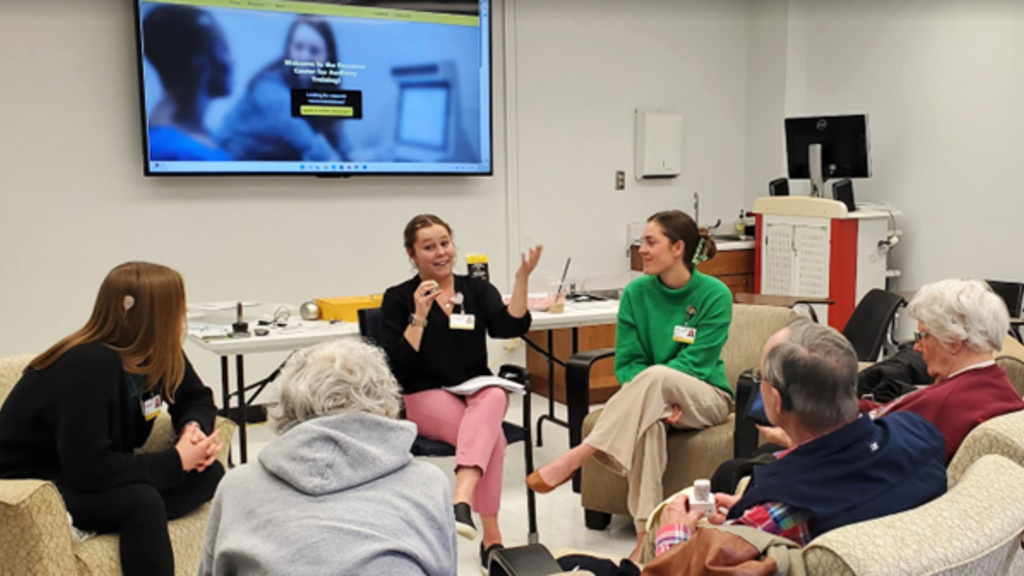
Cochlear Implant Info & Support Groups
Support sessions inform those who use and those considering wearing CIs and their frequent communication partners to share experiences and learn from one another. Julie Jeon and audiology graduate students discuss how cochlear implants work, candidacy, current technology, and potential benefits that CIs can provide.

Early Classroom Collaboration
The Language Disorders in Children course, taught by Philip Combiths, includes a CSD student partnership with the early classroom teachers at the Neighborhood Centers of Johnson County. CSD students coach teachers about language facilitation strategies in the classroom, while CSD students benefit from professional collaborations in real world situations.
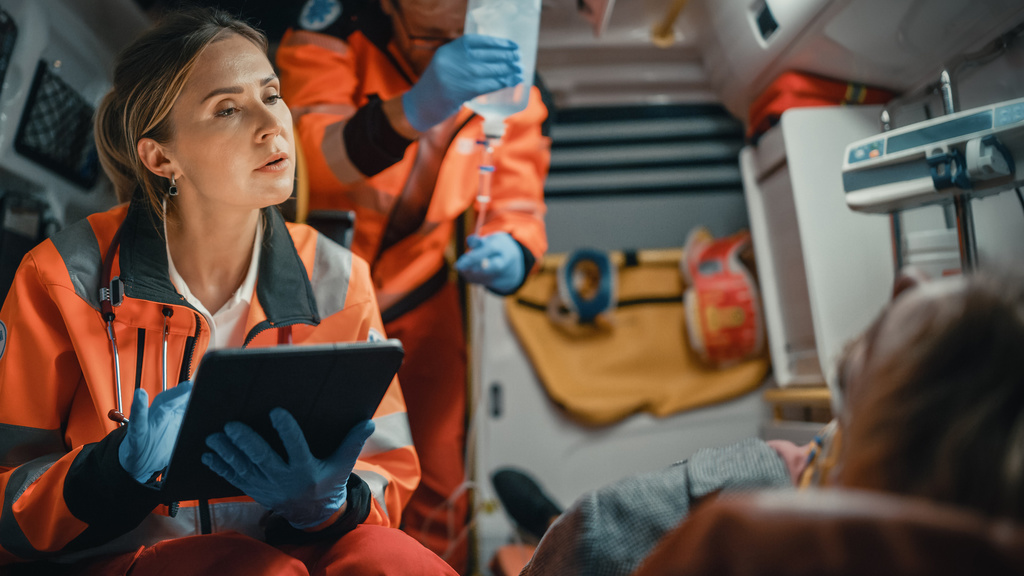
Equipping Iowa's First Responders
Communication breakdowns can occur when first responders cannot obtain important info if victims in an emergency cannot speak due to autism, aphasia, celebral palsy, or other conditions limiting verbal speech. Krista Davidson and graduate student clinicians developed a training course for first responders to close that vital information gap.
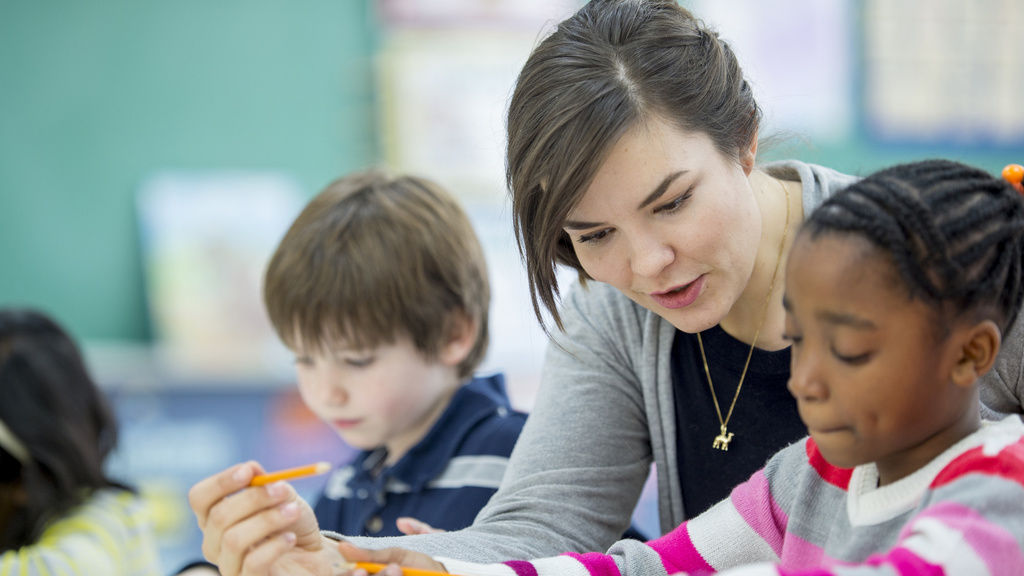
Teachers4Research
An on-line resource for teachers to learn of opportunities to participate in research studies. With these data about training, home support, facilities, and teachers' health, scientists can ultimately provide guidance for teachers' success in the classroom.
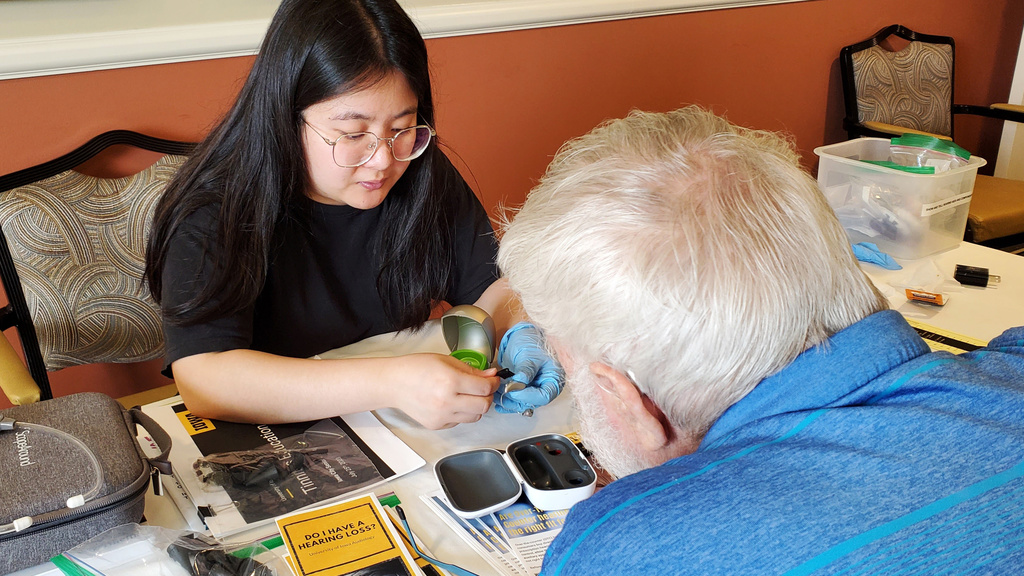
Hearing Aid Outreach
Audiology graduate students travel with Julie Jeon to local senior care centers to offer educational sessions about amplification, hearing aid maintenance, and cochlear implants. Also included are communication strategies for residents and care teams, with info on everyday maintenance of hearing devices and indicators to schedule audiology / related professional visits.
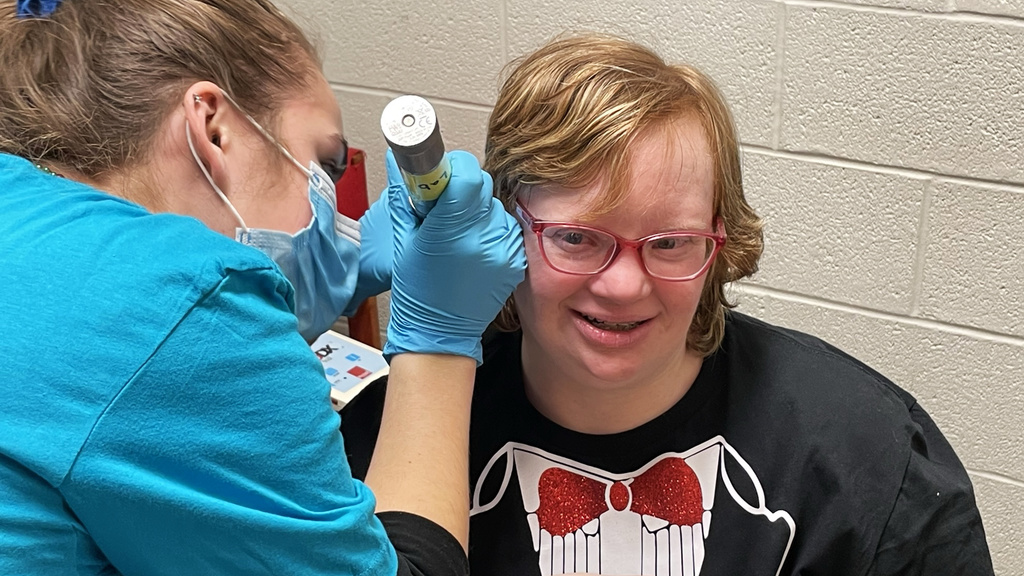
Special Olympics Hearing Testing
Hearing testing is provided free of charge to the 200-plus participants in the Special Olympics Iowa Games by CSD students. Hearing loss among Special Olympians is much greater than the general population, as many hearing problems in this group are undetected or under-served. The Special Olympics Healthy Hearing outreach is coordinated by Elizabeth Stangl.
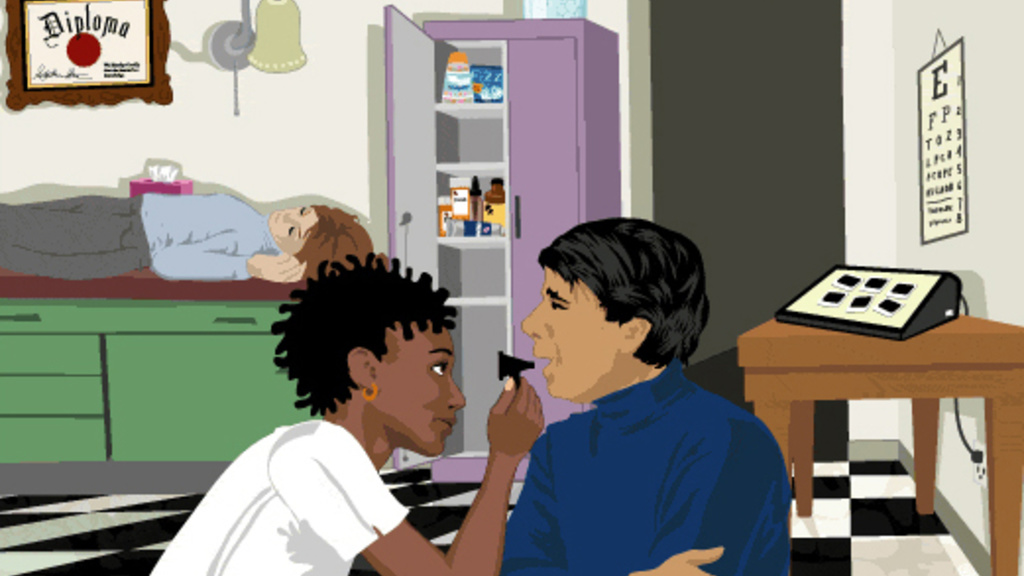
Voice Academy
The Voice Academy is a self-help website to protect the vocal health of U.S. schoolteachers. Research shows that teachers have the highest incidence of voice disorders compared to other occupational groups. Teachers visit the virtual school's classrooms to learn strategies to prevent voice over-use, resources for overworked voices, and tools for creating a healthy vocal environment.
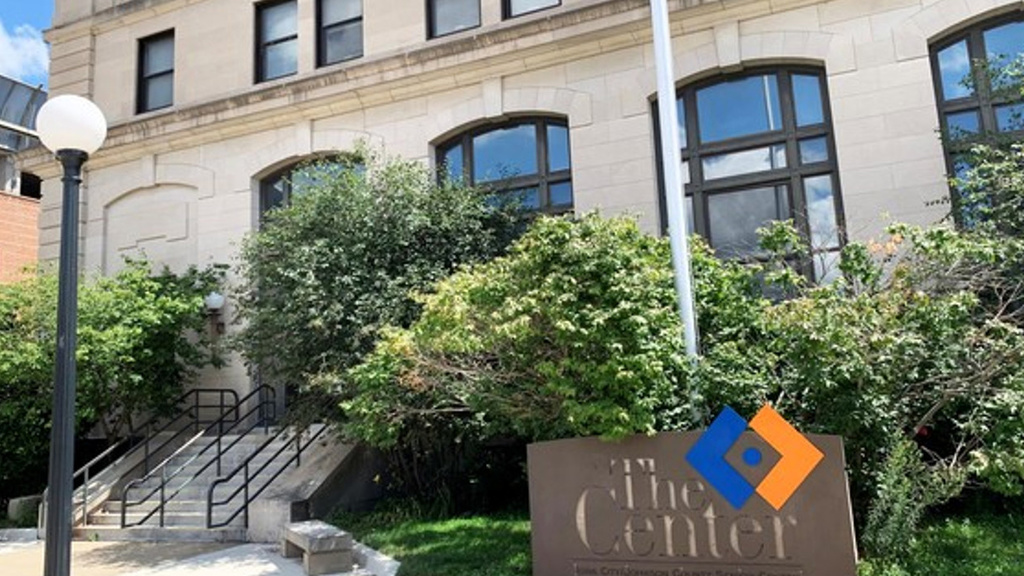
Tinnitus Educational Sessions
Julie Jeon and Audiology grad students host two group educational sessions at the Iowa City Senior Center six times per year: "Hearing Loss & Amplification," and "Tinnitus." Tinnitus sessions provide counseling and management to those affected by tinnitus while also offering student clinicians valuable training opportunities. UIowa's resources are on the American Tinnitus Association website.
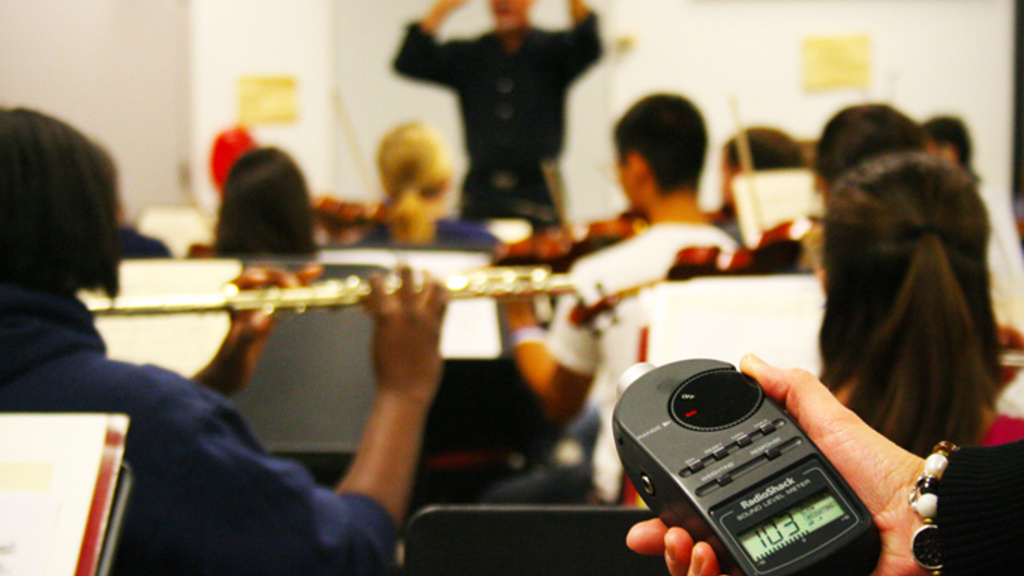
UI SAFE
UI SAFE is a faculty-student educational effort to promote healthy hearing. The team’s main focus is to reach out to individuals across the age span, educating them about exposure to hazardous sound levels which occur in daily life, as well as teaching effective strategies to protect hearing. Led by Kellsie Busho, frequent updates may be read on Facebook and Instagram.